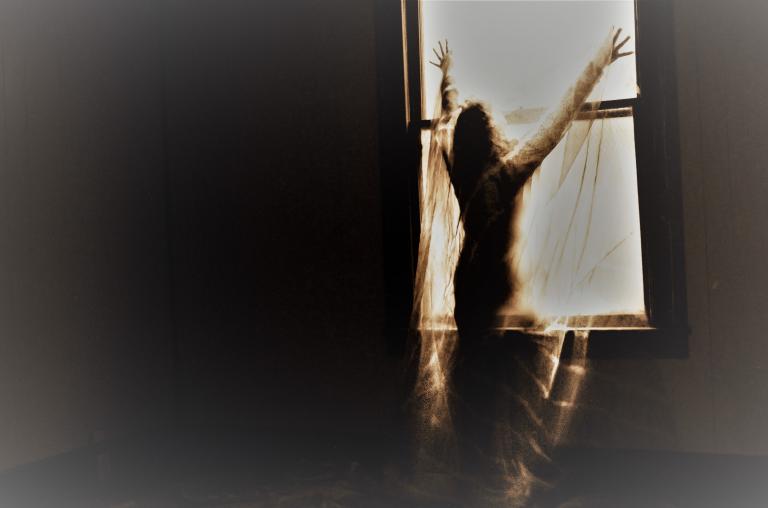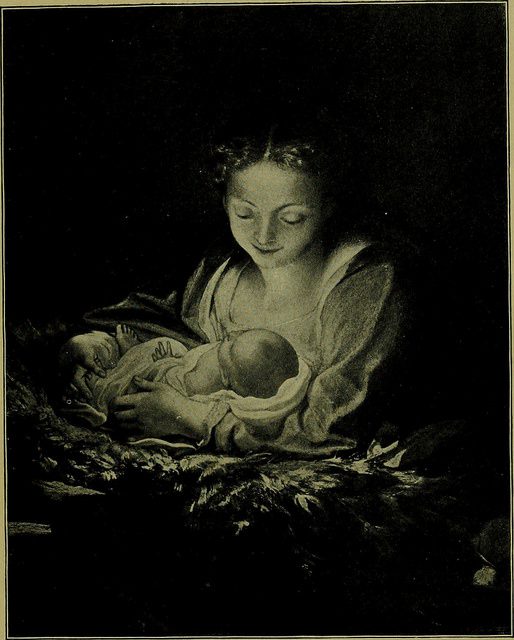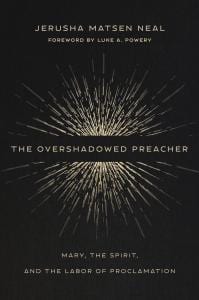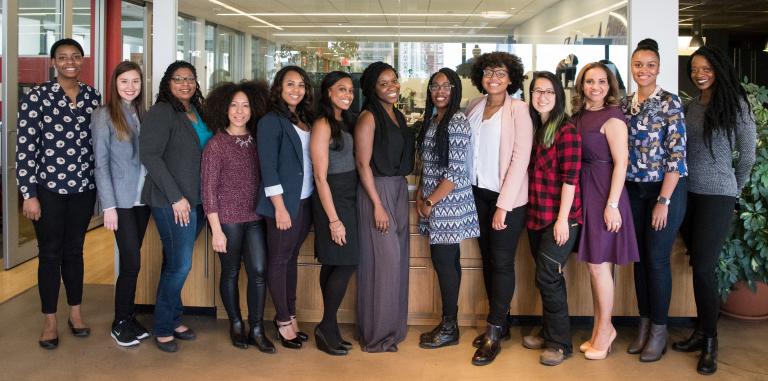Mary’s “Magnificat” forces us to face our attitudes about women and how we treat them. Why do we fear powerful women? Especially now when we need them most?

Kiddo
Last week, an op-ed writer for the Wall Street Journal penned a column in which he attacked Dr. Jill Biden, incoming First Lady, for choosing to use her duly earned title, “Dr.” The 83-year-old critic himself has only a bachelor’s degree, yet he began his column this way.
Madame First Lady—Mrs. Biden—Jill—kiddo: a bit of advice on what may seem like a small but I think is a not unimportant matter. Any chance you might drop the “Dr.” before your name? “Dr. Jill Biden” sounds and feels fraudulent, not to say a touch comic. Your degree is, I believe, an Ed.D., a doctor of education, earned at the University of Delaware through a dissertation with the unpromising title “Student Retention at the Community College Level: Meeting Students’ Needs.” A wise man once said that no one should call himself “Dr.” unless he has delivered a child. Think about it, Dr. Jill, and forthwith drop the doc.
The outrage from women and their male allies at this insulting column was understandably vociferous. But rather than retract this misogynistic essay and apologize to their readers and Dr. Biden, the editor of the WSJ doubled down on his decision to publish the column. And then, several other pundits and personalities piled on in the bash-fest. They attacked Dr. Biden’s dissertation, her research, her degree, and the fact that she teaches at a community college.
Here we go again.
Their scorn repeats an age-old cycle of disparaging and demeaning successful women who dare to pursue education, earn their degrees, and claim their rightful place alongside their male peers. Women recognize this kind of behavior when they see it, whether it is an op-ed in a major newspaper, a snide comment in the board room, or passive-aggressiveness in the classroom.
And, as female pastors will tell you, sometimes it comes in the form of denigrating remarks, unequal pay, disrespect, or downright harassment in a congregation or from male colleagues.
In whatever form it comes, the intention is always the same.
It’s about trying to make women feel smaller, to cut them down, undermine them, and humiliate them into embarrassed silence.
This goes for trans women and those who transcend gender and sexuality binaries, as well.
In the midst of this cultural moment of once again reckoning with rampant patriarchy, we find ourselves confronted with the story of Mary. On this fourth Sunday of Advent, when we hear her song that we call the “Magnificat,” we are faced with our attitudes about women and how we treat them.
How will we regard Mary? Will we make her small and dismiss her? Or will we recognize her for the powerful woman she is?
Beverly Gaventa points out that Mary has not one role, but three – as disciple, as prophet, and as mother (Mary: Glimpses of the Mother of Jesus, 72-73). But our dainty, sanitized Christmas cards show us only one of those roles – Mary as mother. This is a problem. Because when we assume that the only valid role for Mary, or any woman for that matter, is as wife and mother, we lose the gifts they have to offer.
At this time of year, we see images depicting a demure little woman, domesticated and docile before a star-washed manger.

Correggio (1489 – 1534). Public domain
We hear Christmas songs like, “Mary Did You Know?” that try to mansplain her pregnancy and the significance of her son. As if she didn’t know? I mean, the text says right here that the angel Gabriel told her what was going to happen. So, yes, she knew.
[Here’s a hilarious and biting take-down of the song: “Yes, I Freakin’ Knew!” Or try these excellent and much more appropriate lyrics by Jennifer Henry: https://holytrinity.to/2017/12/mary-did-you-know/]
And when it comes to Mary’s Magnificat we try to tame it by turning it into a pretty hymn or a solo for a soprano to sing in a Christmas oratorio.
But the Magnificat is no lullaby or art song. This is an anthem of revolution!
Think about what Mary is saying here!
God has scattered the proud in the thoughts of their hearts.
52 God has brought down the powerful from their thrones,
and lifted up the lowly;
53 God has filled the hungry with good things,
and sent the rich away empty.
These are dangerous words spoken, sung, perhaps even shouted by a dangerous woman.
And when a patriarchal society deems a woman dangerous, it will use any number of tactics to muzzle and disempower her. They’ll sully her reputation. Or relentlessly criticize her. Or place unrealistic expectations on her.
And sometimes they’ll just wrap her in a halo and place her in a tableau of men – a husband, shepherds, and wisemen. Separated from her sisters, her mother, her cousins, her friends – there she is all alone without a single female ally in a world of men. Let’s see your raise your voice in song now, kiddo.
But Mary will not be silenced.

My homiletics colleague, Jerusha Matsen Neal, wrote an excellent booked called The Overshadowed Preacher: Mary, the Spirit, and the Labor of Proclamation, in which she notes the power of the Magnificat. “[Mary’s] song stands as a critique of any codification of tradition that would set up the powerful on thrones or silence the lowly” (117).
Matsen Neal reminds us that the Holy Spirit is the one who empowers Mary in these three roles of disciple, prophet, and mother. Mary’s discipleship informs her motherhood, and vice versa. Her role as a prophet is informed by her role as a disciple. And all of this is made possible by the Spirit of God.
But, you see, herein lies the problem. Mary has the audacity to say that she MAGNIFIES God! Magnify means to enlarge, to make bigger. Can you imagine the unmitigated gall of that woman?! Daring to say that she makes God bigger than God already is? That she enlarges God? That her out-of-wedlock pregnancy is a reason to call herself blessed? Boy, that takes some . . . ovaries, doesn’t it?
We might imagine Mr. Epstein writing an op-ed to Mary in the Nazareth Street Journal. It might read something like this.
Mother of Jesus—Mrs. Joseph—Mary—kiddo: a bit of advice on what may seem like a small but I think is a not unimportant matter. Any chance you might drop the “Blessed” before your name? “Blessed Virgin Mary” sounds and feels fraudulent, not to say a touch comic. Your title, I believe, is derived from the angel Gabriel’s announcement that you would bear a son – without the benefit of a husband. You then had the impudence to proclaim your greatness through a song with the unpromising title “Magnificat.”
A wise man once said that no one should call himself “blessed’ unless he has delivered a child. Oh, wait. You did deliver a child. Yeah, the savior of the world. Okay, forget that.
But do think about it Mary, and forthwith drop the “blessed.”
But my dear boy, this is not a woman brazenly claiming something for herself that she has not earned or deserved. This is a title bestowed on her by God.
Mary recognizes that God has “lifted up the lowly” (v. 52). She is not willing to be small for you or anyone other insecure man. This revolutionary woman “is not passive and silent. She is bold in her praise and in her proclamation of God’s power and goodness,” says Matsen Neal (116).
“The Holy Spirit is not only an agent of commissioning and power in Luke’s text,” Matsen Neal says. “The Spirit’s action creates a living dependence between one’s identity and agency in the person of Christ” (114).
Yet it is precisely the identity and agency of women that people like Joseph Epstein, WSJ editor Paul Gigot, Fox News commentator Tucker Carlson, and National Review writer Kyle Smith try to attack and tear down.
But here’s what they don’t understand. It’s not going to work.
Matsen Neal reminds us, “When Mary says that generations will call her blessed (Luke 1:48), this blessing is not for her alone. The great things that the ‘Mighty One has done’ for Mary (v. 49) are a fulfillment of the ‘promise [God] made to [Mary’s] ancestors’” (v. 55) (197). And those promises are for generations to come.
What’s more, the exchange between Mary and Elizabeth shows us that women are united in their strength and solidarity. Rarely does the Bible show us women working together, but when it does, the results are stunning.
Women working together change the world.
Like the Egyptian midwives and Israelite women protecting the babies from a murderous Pharaoh. Like the women who will come to Jesus’ tomb on Easter morning and be charged with proclaiming the risen Christ. The women – not the men – were the first preachers of the resurrection!
And here in Luke’s story, we have two women – Elizabeth and Mary – conspiring together about the children they will birth and raise to change the world – John the Baptist and Jesus the Christ. Matsen Neal says that this is a story that “communicates the potency of female cooperation rather than competition” (117).
One was an older woman written off because she didn’t bear any children. The angel Gabriel had to put her husband on mute for nine months when he questioned the announcement of his wife’s pregnancy.
The other was a young woman whose fiancé was about to separate from her when he found out she was pregnant – and the child was not his. The angel had to come to him in a dream to assure him that it was okay to wed Mary – pregnancy and all.
To both men, the angel said the same thing: Do not fear.
This makes me wonder if the strong reaction to these strong women is about just that: fear.
Why do some people fear a powerful woman?

Especially a powerful black woman, or Latinx woman? Or a Native American woman? Or an Asian woman? Trans women? Gay men and women? Is it because there is an inherent awe of the Spirit that fills them with such power? Perhaps even a touch of jealousy because of this power?
The power to give life, to nurture life with their own bodies. The power of their minds to make calculations and write dissertations. Their hands to both caress and create art and music. Their imaginations to envision a world where the lowly are recognized as having value. And their determination to structure a world where food and wealth are not hoarded by a handful of rich, hetero, white men, but shared equitably among those who actually work for it. Where those who try to make themselves big by cutting others down find their thoughts scattered and impotent.
Here’s the thing. We need powerful, smart, capable, creative women like Mary, like Dr. Jill Biden, and like billions of others whom men have tried to shame and silence.
Our world is facing unprecedented challenges from a pandemic, from inequality, from environmental disasters, and from long-standing racism. This is an all-hands-on-deck moment for the human race if we’re going to pull through. So we need everyone – women especially – to be equipped to reach their highest potential in order to get us out of this mess.
The female Russian astronaut Valentina Tereshkova put it like this: “A bird cannot fly with only one wing.”
Part of the reason our human society is in this sorry state is because we have not availed ourselves of the human resources of half the population. Especially women who are black, Latinx, Asian, Native American, lesbian, or trans.
This shutting out and shutting down of women must end. We must not attempt to suppress the power of the Holy Spirit to lift up these women. This is exactly the time when we need to encourage girls and women (no matter what their age) to learn all they can, experiment with unbridled curiosity, and create the vision that the divine Spirit is placing within them.
Especially in the church, we need to lift up our young women like Mikaila who is studying to be an engineer. And Rachel who will be entering college next year. And Allison and Kloe who are exploring and discovering as they learn and grow.
They are not just the future of the church. They are the church right now. And their souls magnify the Lord. Their spirits rejoice in God who is doing great things for them.
Thanks be to God for these Magnificat women. May they be lifted up, given wings, and empowered to soar with the Spirit of God. Amen.
Read also:
That’s “Rev. Dr.” to you, kiddo. A rebuttal to WSJ’s Joseph Epstein
Wall Street Journal: Your Misogyny Double-Down is Backfiring
Top 10 Things Never to Say to Your Female Pastor
7 Ways Your Church Can Support Your Female Pastor
Sources for this post:
Jerusha Matsen Neal. The Overshadowed Preacher: Mary, the Spirit, and the Labor of Proclamation. Grand Rapids, MI: William B. Eerdmans Publishing Company, 2020.
Beverly Gaventa. Mary: Glimpses of the Mother of Jesus. Minneapolis: Fortress Press, 1999.

Leah D. Schade is the Assistant Professor of Preaching and Worship at Lexington Theological Seminary in Kentucky and ordained in the ELCA. Dr. Schade does not speak for LTS or the ELCA; her opinions are her own. She is the author of Preaching in the Purple Zone: Ministry in the Red-Blue Divide (Rowman & Littlefield, 2019) and Creation-Crisis Preaching: Ecology, Theology, and the Pulpit (Chalice Press, 2015). She is the co-editor of Rooted and Rising: Voices of Courage in a Time of Climate Crisis (Rowman & Littlefield, 2019). Her latest book, co-written with Jerry Sumney is Apocalypse When?: A Guide to Interpreting and Preaching Apocalyptic Texts (Wipf & Stock, 2020).
Leah is also co-founder of the Clergy Emergency League, a grassroots network of clergy that provides support, accountability, resources, and networking for clergy to prophetically minister in their congregations and the public square in this time of political upheaval, social unrest, and partisan division.
Twitter: @LeahSchade
Facebook: https://www.facebook.com/LeahDSchade/













